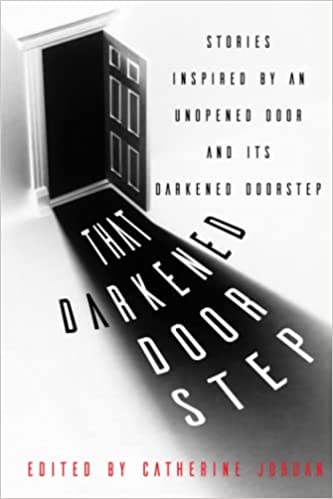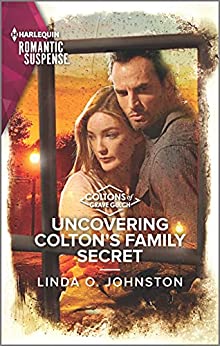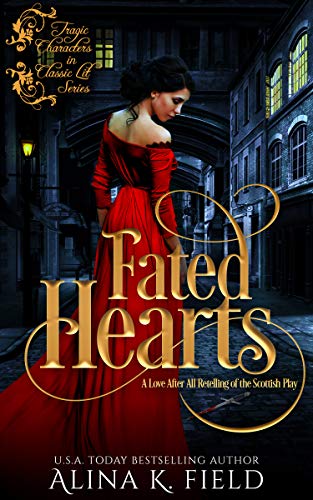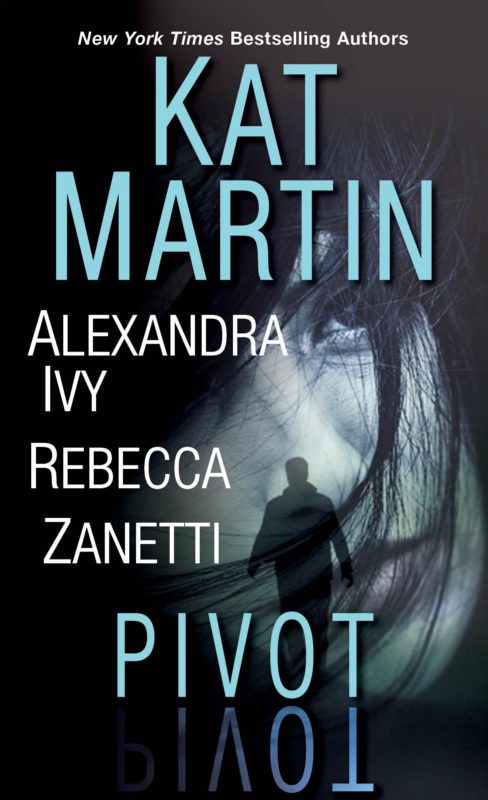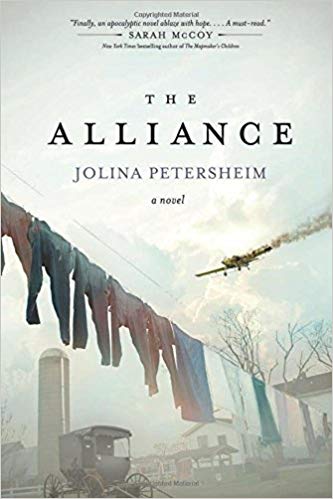Criticism: Big Girl Panties for Ruth by Jenny Jensen
February 19, 2021 by Jenny Jensen in category On writing . . . by Jenny Jensen tagged as constructive criticism, critiques, Editors, Jenny Jensen, writers
Or How to Take It on the Chin and Grow
(From our archives. We hope you enjoy this rerun from Jenny Jensen)
I attended an author’s chat the other day at our local library. It’s always fun to hear an author talk about their craft— especially if you like their books. The bonus is mingling with other attendees. Who among us doesn’t enjoy chatting with fellow book lovers? I found myself in conversation with two women, each funny, gracious and interesting. When talk got to the inevitable “so what do you do?” I learned Kit was a nurse and Ruth, a writer. I added that I’m an editor and while Kit smiled acknowledgment, Ruth scowled.
Ten minutes later—after Kit had smiled apologetically and bowed out—I’d learned all about Ruth’s experience with editors. “They call themselves editors, but they’re really just critics. They couldn’t even follow the story, let alone the subtext. They’re just mean, simple-minded wannabe writers” and so forth. Yowza! I’d never encountered that before. I know a lot of editors, and none of them fit that bill. Best to just nod and try to look sympathetic while keeping an eye peeled for a graceful escape. Ruth had either met the world’s worst editors, or she’s simply unable to handle criticism. I suspect the latter.
Writing is hard, solitary work. It’s just you creating in a vacuum. Writing requires hours of reading, writing and revising, searching for just the right words to make a character live and breathe, the perfect plot twist, the right feel. Writing writing writing, and then hours of revision. The whole blood, sweat and tears combo. Then there’s the criticism; every writer has to face it if they want to share their work outside that creative vacuum.
It can be a hard pill to swallow. I know. I’ve been singed by some very savvy, very critical edits. Hard to have your heart and soul — not to mention all that BS&T—picked to pieces by others. But like mammograms, taxes and dirty diapers, it has to be faced.
As an editor, I’m really loath to offer a ‘critique’. That word has such baggage. If words have color, then criticism is a red-tinged pulsating mash-up of bruised blue and black. I prefer to think of what I do as editorial assessment, or an overview. (Words really are powerful, aren’t they?!) But no matter how I spin it, it comes down to criticism.
Criticism is like cholesterol; there’s the good kind and the bad kind. The LDL kind, the bad kind, is empty criticism. “ I don’t like it”, “Flimsy and transparent” or “I don’t get it”. My favorite being, “yeah, I read it. Interesting”. Ouch! Then there is the polite, painless approach: “Very nice!” What could that possibly mean?
Constructive criticism is HDL cholesterol, good for every writer’s circulation. Good criticism points out pitfalls and weaknesses, but it also explains why they are pitfalls and weaknesses. It sheds light on why it doesn’t work. Really good, healthy criticism offers solutions. I never expect an author to accept a solution I offer (and most don’t, they find their own). I offer it as a straw man—something to consider, breakdown, reject and replace with a better approach because suggesting a substitute shows the author the problem needing a solution. It’s because a writer creates in isolation that they can’t always hear a misstep. I’m guessing Ruth’s missed subtext was so sub it wasn’t there. Point this out to a writer and the light bulb goes on; they revise, and the story is stronger.
How should you, as a writer, react to criticism? You wrote it, you shared it—you must learn to account for it. How do your words strike people? Did the reader see nothing where you intended a scene to be revealing or suggestive, and so the story is confusing? You can’t dismiss the reader as thick, dense or stupid. You have to look at your words and consider improvement because clearly, those words didn’t do the job you had intended. Whether it’s a missed plot point or character motivation that can’t be seen, maybe it isn’t on the page; it’s still in your head. Revise, rewrite. Listen to the audience your words are intended for. The best writers respect their readers. Your work will only get better.
A good editing critique helps you identify weaknesses. Don’t take it personally. Constructive criticism is useful precisely because it isn’t personal. Your BFF is unwilling to risk a response that might be hurtful, but is that what a writer needs?
Writing’s about kicking doubt in the ass and shoving him out the door. Editing’s about inviting him back in for tea and scrutiny. *
I wish Ruth had invited her editor back in.
*from @novelicious, that magical twitter feed that is double chocolate for every writer’s sweet tooth.
0 0 Read moreIn the Judgment Seat
May 13, 2020 by Bethlehem Writers Group in category From a Cabin in the Woods by Members of Bethlehem Writers Group tagged as constructive criticism, critiques, short story contest

From a Cabin in the Wood’s is a column featuring authors from the Bethlehem Writers Group. Writing for us this month is Dianna Sinovic.
Born and raised in the Midwest, Dianna Sinovic has also lived in three other quadrants of the U.S. She writes short stories and poetry, and is working on a full-length novel about a young woman in search of her long-lost brother.
In the Judgment Seat
The Bethlehem Writers Group, one of the writers groups I’m in, sponsors an annual short story contest for all non-members, and the members do much of the judging—the first cuts, the semifinalist round, and the finalists. Once the finalists are selected, a guest judge (an author outside the organization) makes the final call on the rankings of first, second, and third.
Each story is judged by three people, using a templated rubric, with the two highest scores determining whether the story makes it to the semifinalist category. Sometimes the same story can accrue widely divergent scores. How could three readers have such different reactions? That difference of opinion explains why sometimes the debates the group has on which stories come out on top are quite heated.
I’m often amazed at the creativity of some of the entrants, but also always disappointed in others. I think—if only the author had done X, Y or Z, the results would have been much more satisfying or made more sense.
It’s also instructive to see how often an entry lacks a story arc. Even if a story is short and basically just one scene, it still needs a beginning, middle and end, with a goal in mind for the main character. Author Juliet Marillier said that stories with no proper ending also don’t make the cut when she judges.
It’s also interesting to see that some authors submit pieces that are mostly likely memoir. This can work if the personal account contains the essence of a good story, with that needed arc and depth of character/emotion, but many often don’t.
How the theme is approached is also eye opening. We choose a new contest theme every other year. This year’s topic was animals; it didn’t matter what kind of animal or how many, but an animal had to play an important part in the story. I read tales that featured insects, cats, horses, dogs, sea animals, and reptiles, some good, some not so good. With research only a browser click away, I was discouraged at how often writers didn’t do their homework when trying to depict animal behavior.
Of course, it’s much easier for me to see the flaws in other people’s works than in mine.
Each year’s judging process serves as a reminder to always ask others to read my work and offer their feedback, to let me know where my stories fall short so I can further revise.
Sweet, Funny, and Strange Anthologies Featuring Stories From The Bethlehem Writers Group’s Short Story Award
Criticism: Big Girl Panties for Ruth by Jenny Jensen
May 25, 2018 by Jenny Jensen in category On writing . . . by Jenny Jensen tagged as constructive criticism, critiques, Editors, Jenny Jensen, writers
Criticism: Big Girl Panties for Ruth
Or How to Take It on the Chin and Grow
I attended an author’s chat the other day at our local library. It’s always fun to hear an author talk about their craft— especially if you like their books. The bonus is mingling with other attendees. Who among us doesn’t enjoy chatting with fellow book lovers? I found myself in conversation with two women, each funny, gracious and interesting. When talk got to the inevitable “so what do you do?” I learned Kit was a nurse and Ruth, a writer. I added that I’m an editor and while Kit smiled acknowledgment, Ruth scowled.
Ten minutes later—after Kit had smiled apologetically and bowed out—I’d learned all about Ruth’s experience with editors. “They call themselves editors, but they’re really just critics. They couldn’t even follow the story, let alone the subtext. They’re just mean, simple-minded wannabe writers” and so forth. Yowza! I’d never encountered that before. I know a lot of editors, and none of them fit that bill. Best to just nod and try to look sympathetic while keeping an eye peeled for a graceful escape. Ruth had either met the world’s worst editors, or she’s simply unable to handle criticism. I suspect the latter.
Writing is hard, solitary work. It’s just you creating in a vacuum. Writing requires hours of reading, writing and revising, searching for just the right words to make a character live and breathe, the perfect plot twist, the right feel. Writing writing writing, and then hours of revision. The whole blood, sweat and tears combo. Then there’s the criticism; every writer has to face it if they want to share their work outside that creative vacuum.
It can be a hard pill to swallow. I know. I’ve been singed by some very savvy, very critical edits. Hard to have your heart and soul — not to mention all that BS&T—picked to pieces by others. But like mammograms, taxes and dirty diapers, it has to be faced.
As an editor, I’m really loath to offer a ‘critique’. That word has such baggage. If words have color, then criticism is a red-tinged pulsating mash-up of bruised blue and black. I prefer to think of what I do as editorial assessment, or an overview. (Words really are powerful, aren’t they?!) But no matter how I spin it, it comes down to criticism.
Criticism is like cholesterol; there’s the good kind and the bad kind. The LDL kind, the bad kind, is empty criticism. “ I don’t like it”, “Flimsy and transparent” or “I don’t get it”. My favorite being, “yeah, I read it. Interesting”. Ouch! Then there is the polite, painless approach: “Very nice!” What could that possibly mean?
Constructive criticism is HDL cholesterol, good for every writer’s circulation. Good criticism points out pitfalls and weaknesses, but it also explains why they are pitfalls and weaknesses. It sheds light on why it doesn’t work. Really good, healthy criticism offers solutions. I never expect an author to accept a solution I offer (and most don’t, they find their own). I offer it as a straw man—something to consider, breakdown, reject and replace with a better approach because suggesting a substitute shows the author the problem needing a solution. It’s because a writer creates in isolation that they can’t always hear a misstep. I’m guessing Ruth’s missed subtext was so sub it wasn’t there. Point this out to a writer and the light bulb goes on; they revise, and the story is stronger.
How should you, as a writer, react to criticism? You wrote it, you shared it—you must learn to account for it. How do your words strike people? Did the reader see nothing where you intended a scene to be revealing or suggestive, and so the story is confusing? You can’t dismiss the reader as thick, dense or stupid. You have to look at your words and consider improvement because clearly, those words didn’t do the job you had intended. Whether it’s a missed plot point or character motivation that can’t be seen, maybe it isn’t on the page; it’s still in your head. Revise, rewrite. Listen to the audience your words are intended for. The best writers respect their readers. Your work will only get better.
A good editing critique helps you identify weaknesses. Don’t take it personally. Constructive criticism is useful precisely because it isn’t personal. Your BFF is unwilling to risk a response that might be hurtful, but is that what a writer needs?
Writing’s about kicking doubt in the ass and shoving him out the door. Editing’s about inviting him back in for tea and scrutiny. *
I wish Ruth had invited her editor back in.
*from @novelicious, that magical twitter feed that is double chocolate for every writer’s sweet tooth.
0 0 Read moreAffiliate Links
A Slice of Orange is an affiliate with some of the booksellers listed on this website, including Barnes & Nobel, Books A Million, iBooks, Kobo, and Smashwords. This means A Slice of Orange may earn a small advertising fee from sales made through the links used on this website. There are reminders of these affiliate links on the pages for individual books.
Search A Slice of Orange
Find a Column
Archives
Featured Books
THE DARKEN DOORSTEP
When faced with a darkened doorstep, think before you walk through.
More info →UNDERCOVERING COLTON’S FAMILY SECRETS
Coming face-to-face with her past…
More info →FATED HEARTS: A Love After All Retelling of the Scottish Play
Everything he’d believed to be true was a lie.
More info →
PIVOT
Three friends, each survivors of a brutal childhood, grew up together in foster care. Now as women, they’re fighting for their lives again.
More info →THE ALLIANCE
When Leora Ebersole sees the small plane crash in her Old Order Mennonite community, she has no idea it's a foreshadowing of things to come.
More info →Newsletter
Contributing Authors
Search A Slice of Orange
Find a Column
Archives
Authors in the Bookstore
- A. E. Decker
- A. J. Scudiere
- A.J. Sidransky
- Abby Collette
- Alanna Lucus
- Albert Marrin
- Alice Duncan
- Alina K. Field
- Alison Green Myers
- Andi Lawrencovna
- Andrew C Raiford
- Angela Pryce
- Aviva Vaughn
- Barbara Ankrum
- Bethlehem Writers Group, LLC
- Carol L. Wright
- Celeste Barclay
- Christina Alexandra
- Christopher D. Ochs
- Claire Davon
- Claire Naden
- Courtnee Turner Hoyle
- Courtney Annicchiarico
- D. Lieber
- Daniel V. Meier Jr.
- Debra Dixon
- Debra H. Goldstein
- Debra Holland
- Dee Ann Palmer
- Denise M. Colby
- Diane Benefiel
- Diane Sismour
- Dianna Sinovic
- DT Krippene
- E.B. Dawson
- Emilie Dallaire
- Emily Brightwell
- Emily PW Murphy
- Fae Rowen
- Faith L. Justice
- Frances Amati
- Geralyn Corcillo
- Glynnis Campbell
- Greg Jolley
- H. O. Charles
- Jaclyn Roché
- Jacqueline Diamond
- Janet Lynn and Will Zeilinger
- Jaya Mehta
- Jeannine Atkins
- Jeff Baird
- Jenna Barwin
- Jenne Kern
- Jennifer D. Bokal
- Jennifer Lyon
- Jerome W. McFadden
- Jill Piscitello
- Jina Bacarr
- Jo A. Hiestand
- Jodi Bogert
- Jolina Petersheim
- Jonathan Maberry
- Joy Allyson
- Judy Duarte
- Justin Murphy
- Justine Davis
- Kat Martin
- Kidd Wadsworth
- Kitty Bucholtz
- Kristy Tate
- Larry Deibert
- Larry Hamilton
- Laura Drake
- Laurie Stevens
- Leslie Knowles
- Li-Ying Lundquist
- Linda Carroll-Bradd
- Linda Lappin
- Linda McLaughlin
- Linda O. Johnston
- Lisa Preston
- Lolo Paige
- Loran Holt
- Lynette M. Burrows
- Lyssa Kay Adams
- Madeline Ash
- Margarita Engle
- Marguerite Quantaine
- Marianne H. Donley
- Mary Castillo
- Maureen Klovers
- Megan Haskell
- Melanie Waterbury
- Melisa Rivero
- Melissa Chambers
- Melodie Winawer
- Meriam Wilhelm
- Mikel J. Wilson
- Mindy Neff
- Monica McCabe
- Nancy Brashear
- Neetu Malik
- Nikki Prince
- Once Upon Anthologies
- Paula Gail Benson
- Penny Reid
- Peter J Barbour
- Priscilla Oliveras
- R. H. Kohno
- Rachel Hailey
- Ralph Hieb
- Ramcy Diek
- Ransom Stephens
- Rebecca Forster
- Renae Wrich
- Roxy Matthews
- Ryder Hunte Clancy
- Sally Paradysz
- Sheila Colón-Bagley
- Simone de Muñoz
- Sophie Barnes
- Susan Kaye Quinn
- Susan Lynn Meyer
- Susan Squires
- T. D. Fox
- Tara C. Allred
- Tara Lain
- Tari Lynn Jewett
- Terri Osburn
- Tracy Reed
- Vera Jane Cook
- Vicki Crum
- Writing Something Romantic
Affiliate Links
A Slice of Orange is an affiliate with some of the booksellers listed on this website, including Barnes & Nobel, Books A Million, iBooks, Kobo, and Smashwords. This means A Slice of Orange may earn a small advertising fee from sales made through the links used on this website. There are reminders of these affiliate links on the pages for individual books.














